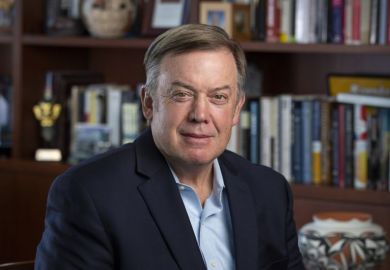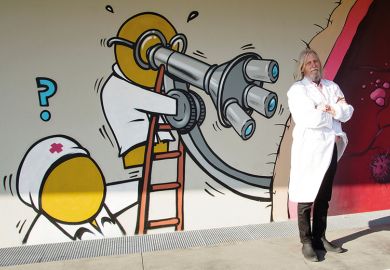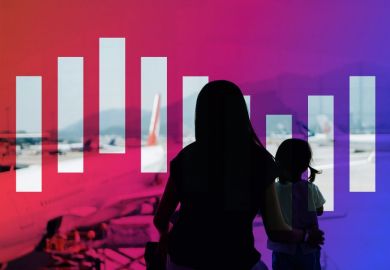Margaret Chan, former director-general of the World Health Organisation turned academic, has raised an alarm about the continued harm Covid-19 could cause if countries fail to work together on education and research.
“The current pandemic is truly unprecedented in history – in terms of speed, severity and scale. This is the most cunning virus I have ever seen in 40 years in global health,” said Professor Chan, the newly appointed inaugural dean of the Vanke School of Public Health at Tsinghua University.
Speaking at a joint symposium by Imperial College London and Tsinghua, she called the virus a “common enemy” that could only be defeated with worldwide cooperation and humility.
“We may think we know how to control it – but no,” she said. “At every turn of the corner, the virus has surprises for us.”
She cited humankind’s long battle against infectious diseases such as Sars, Mers and Ebola: “It reminds us, time and time again, that mankind is a community. We must abolish discrimination and unite unconditionally.”
Covid-19 had “exposed weaknesses” in health and emergency response systems across the world, including in China, she said. But there were also lessons to be learned from containment measures in mainland China, and in public health measures such as mask usage in Hong Kong.
“China’s experience in fighting Covid-19 is very valuable,” she said. “China will improve its public health and share her experiences with the international community.”
While none of the speakers at the event mentioned the United States specifically, it appeared to be the elephant in the room in a discussion about global cooperation. The US has moved to defund the WHO and threatened to block some Chinese scholars. At the same time, the US also has the highest Covid-19 caseload in the world, with 2 million infections.
Professor Chan warned governments that “any attempt to ‘wait and see’, any attempt to downplay [the disease], will bring disastrous consequences”.
“Why is it so difficult for so many men to say: ‘I don’t know’?” she quipped, and then jokingly apologised to co-keynote speaker David Nabarro, co-director of the Institute of Global Health Innovation at Imperial.
Professor Nabarro agreed with Professor Chan’s assessment. “Waiting four, five weeks compounds [Covid-19’s] impact,” he said. “What a pity that it’s been so difficult for many nations to learn from others.”
He added that communities depended not only on governments but also on universities, businesses and other organisations to help fight disease. He advised fellow academics to “come out of our disciplinary silos” to engage more with society.
“We can’t do good risk communications without good science,” he said as an example.
Alice Gast, Imperial’s president, said that Covid-19 had “caused us to make rapid and profound changes, but the one thing that has not changed is our working with international partners”.
Imperial and Tsinghua are now working together on vaccine development. Bin Yang, vice-president and provost at Tsinghua, confirmed that “collaborations in vaccine manufacturing will start soon”.
“We have to learn from this challenge that only through solidarity and cooperation can we overcome difficulties and sustain higher education,” Professor Yang added.
Sir Keith Burnett, president of the UK Science Council and former vice-chancellor of the University of Sheffield, also stressed the importance of UK-Chinese ties, in a separate online event.
Sir Keith, speaking as part of the Ambright Virtual University Fair China 2020, answered questions from a Chinese audience on a range of issues including Covid-19, reports of discrimination, US relations and even recent protests.
“There are enormous concerns about changing political contexts,” he said. “Some forces are saying we shouldn’t work together. But as universities, it is our role to explain the benefits of cooperation. Virtually all my science and higher education colleagues share this sense of internationalisation.”
“It is even more important during a pandemic,” he concluded.
Register to continue
Why register?
- Registration is free and only takes a moment
- Once registered, you can read 3 articles a month
- Sign up for our newsletter
Subscribe
Or subscribe for unlimited access to:
- Unlimited access to news, views, insights & reviews
- Digital editions
- Digital access to THE’s university and college rankings analysis
Already registered or a current subscriber?








